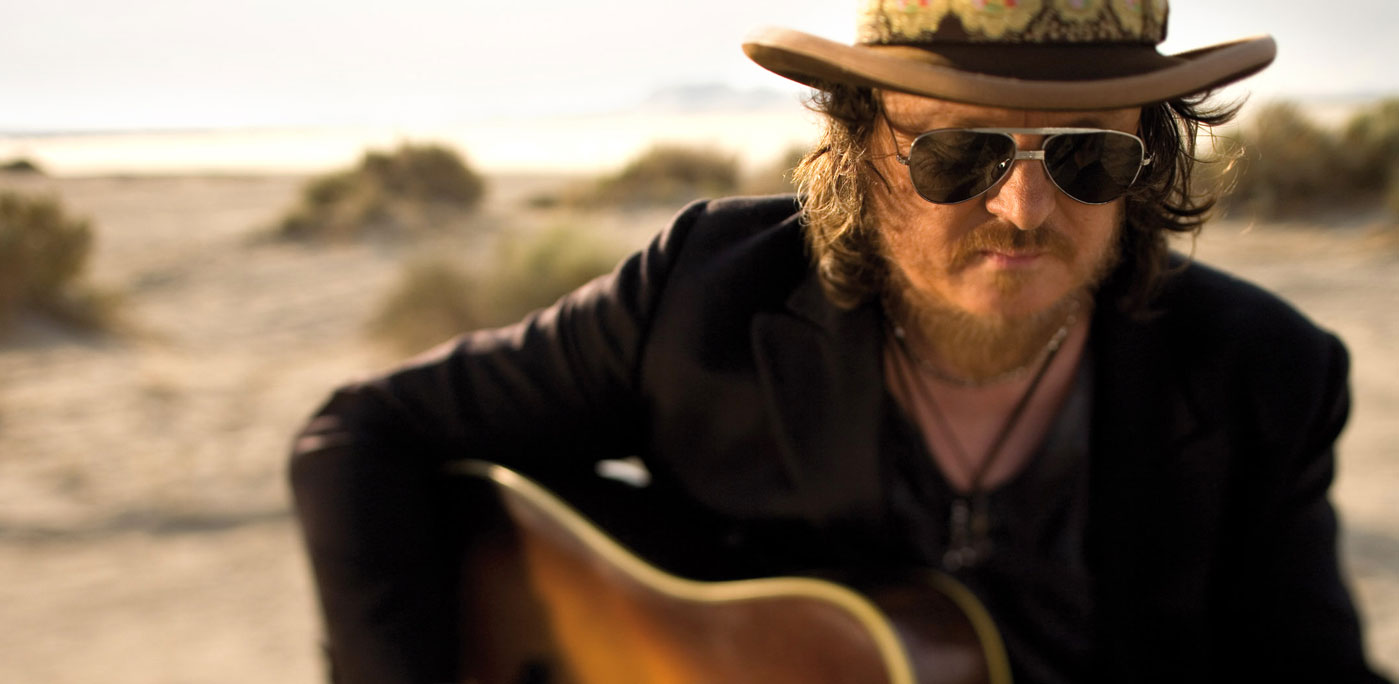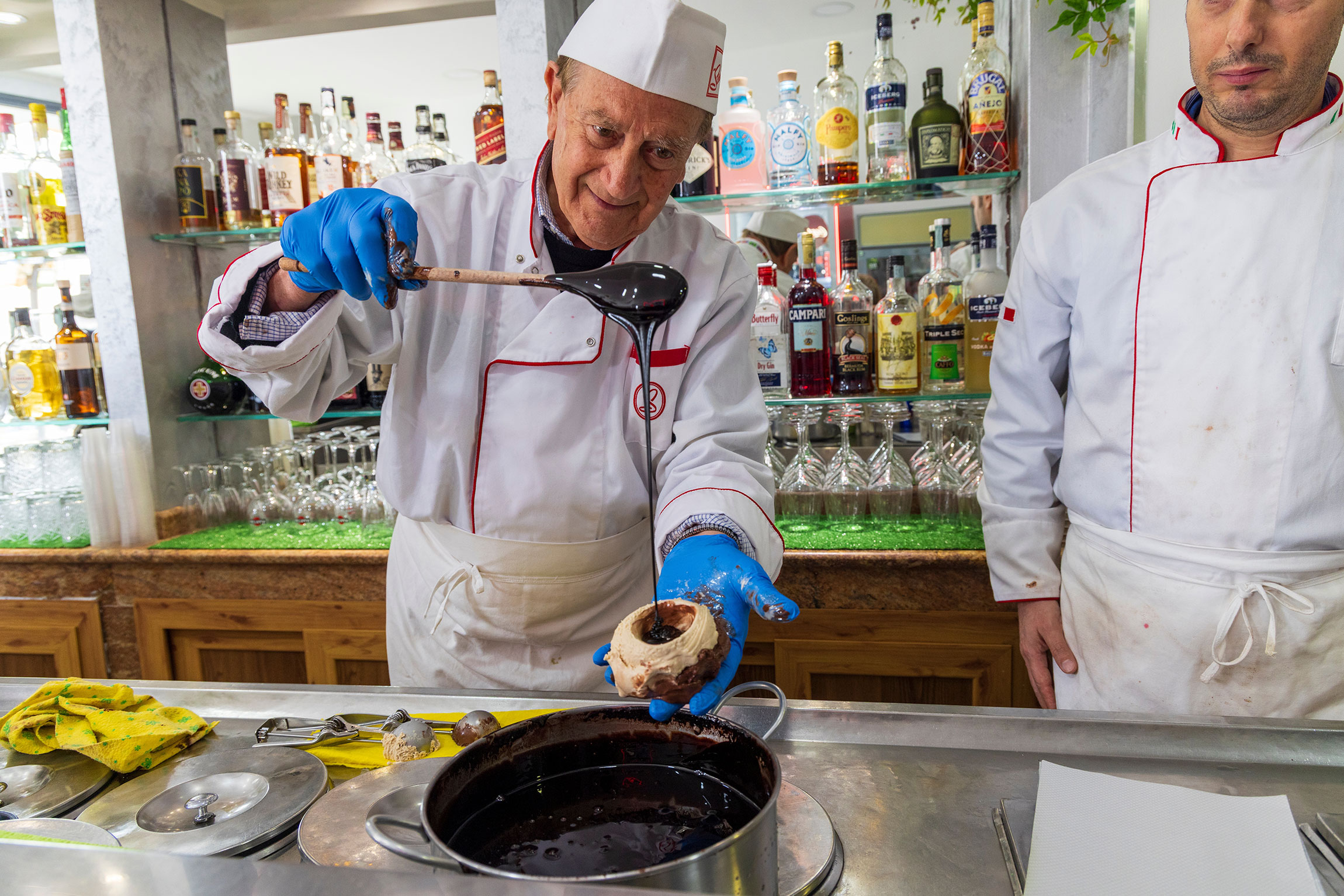Blues is a genre and musical form, grown out of spirituals and work songs by African Americans, in the so-called “Cotton States” of the US in the late 1800s.
Historically, Rhythm and Blues is an eminently Afro-American popular music genre combining jazz, gospel, and blues influences.
According to the Rock and Roll Hall of Fame, soul is “music that arose out of the black experience in America through the transmutation of gospel and rhythm & blues into a form of funky, secular testifying.”
Just as Eminem (whose real name is Marshall Bruce Mathers III) has broken into hip hop – a musical genre predominantly associated with black culture – reaching such heights as to be nicknamed by Rolling Stone the “King of Hip Hop,” so too Zucchero (whose real name is Adelmo Fornaciari) broke into the above defined, blues, rhythm and blues, soul – musical expressions of the African-Americans – reinventing those in a fresh “Mediterranean” blend.
Credited as the “father of the Italian blues,” Zucchero, who can boast 50 million records sold worldwide, is going to kick off his Black Cat World Tour, performing in nineteen cities across the US, including California’s San Diego, San Francisco and Los Angeles (March 17, at the Saban Theatre).
Before embarking in a successful musical career, you followed your passion for animals and enrolled in Veterinary Medicine. When an American fellow student taught you the basics of guitar playing, you dropped out of university to become a professional musician.
I was born in Roncocesi, a small village nearby Reggio Emilia (city in the Emilia-Romagna region), from parents who worked as farmers.
I grew up surrounded by nature and animals, so, after high school, when I had to decide what to do next, I opted for veterinary medicine at the university of Bologna.
In those years, the 70s, I used to listen to a lot of music, especially Afro-American, that came as a breath of fresh air to Italy’s musical landscape.
As I was still studying at university, I formed several bands and started playing this type of music around various venues. I found a record label offering me a contract, under which I would have had to sing in the tradition of Italy’s bel canto.
That didn’t reflect my artistic aspirations, so, upon dropping out of university, I decided to follow my fascination towards soul and blues and go to the States.
In 1984, I flew to San Francisco, where a guitarist native of Naples, Italy, Corrado Rustici – who could boast international collaborations with such names as Aretha Franklin and Marvin Gaye – produced my first successful album, Zucchero and the Randy Jackson Band. That marked the beginning of a long and productive professional collaboration with the guitarist-producer.

In April 1988, you recorded a new version of Dune Mosse (originally released in your fourth album, Blue’s) with jazz legend, Miles Davis. How was the experience of playing alongside such a musical genius?
It was an incredible and unexpected experience, occurred during a vacation with my wife, following the release of my album, Blue’s (that contained the song, Dune Mosse).
Miles Davis was then touring around Italy. After a concert, he and his Italian promoter were having dinner at a restaurant. As my song played on the radio, the jazz legend asked who was the singer. The promoter replied that the up-and-coming Italian artist was Zucchero.
Davis immediately expressed his wish to play Dune Mosse with me. I was with my wife in the Maldives and it was in the dead of night, when I received a phone call, with the offer of recording the song with him in New York City.
Initially, I thought it was just a joke. Then, I realized how Miles Davis really wanted to work together. To be praised for my voice by such a musical genius was very encouraging to me. He also urged me to follow my artistic path and to keep singing in Italian.
In the summer of 1989 at the Verona Arena, you performed alongside legendary soul music’s pioneer, Ray Charles. What do you remember of that experience?
Until then, the splendid Verona Arena had usually hosted concerts of classical music. However, I managed to have the renowned Italian amphitheater as venue for my performance.
Being aware that, in the same summer ’89, Ray was touring Italy, I contacted his agent and asked if the legendary soul musician was available to perform as a special guest at my show.
Ray Charles willingly consented, but not without causing some panic in the evening of the concert. In fact, he didn’t show up at the agreed time for the rehearsals, but only half an hour before my entry on stage.
We barely rehearsed one song for fifteen minutes, with him playing the piano in the dressing room.
I doubted he would have remembered the tune, but, surprisingly, Ray executed everything to perfection, proving himself a genius once again.
In 1995, you were invited to sing at Los Angeles’ House of Blues, in occasion of a tribute to late comedic genius John Belushi. How did you end up performing with The Blues Brothers?
While I was recording my new album in Los Angeles, I was invited to sing at the House of Blues as a tribute to John Belushi.
Only when I got there, I found out that Dan Aykroyd, member of the original formation of The Blues Brothers, was in attendance.
During the gala evening, I executed two songs of my repertoire, Diavolo in me and You are so beautiful, accompanied by the house band.
Afterwards, Dan unexpectedly introduced me on stage as “their Italian brother.” He and John’s brother, Jim Belushi, started dancing in character, as I resumed singing.
The very special evening was recorded and later released across Europe.
In 2004, it was released your album, ZU & Company, in which you grouped a series of duets with international singers/musicians. The year after, the same CD was a success in the US, also thanks to its distribution through Starbucks. Could you expand on that?
ZU & Company was a collection of old, unreleased duets and new ones. I presented the album in a special concert at London’s Royal Albert Hall, with some of the guests featured in the CD, the likes of Luciano Pavarotti, Eric Clapton, Brian May, Dolores O’Riordan, Fher from the Mexican rock band Maná.
It was the first album that entered the Billboard 200 chart in the US, also thanks to the record label handing over its distribution to the Starbucks chain.
Let’s jump forward to the Americana Tour, in 2014. What were its highlights?
It was a long and successful tour, with 38 concerts across North America. Aside from a dozen dates in Canada, the remaining ones touched every main city in the US.
The enthusiastic reception from the North American audience, inspired me to repeat the experience, with my new upcoming, Black Cat World Tour, featuring twenty concerts in Canada and the US, between March and April.
Tell us more about the latter, in which you are going to perform songs from your last album with the same name. You also collaborated with Bono, lead vocalist of the Irish rock band U2, who penned the lyrics for Streets Of Surrender (S.O.S.).
I’ve been friend with Bono since 1992. We partnered professionally from that year’s Miserere, through the 1999 charity tour, Net-Aid – hosted, among other venues, in New Jersey’s Giant Stadium – up to this latest collaboration.
I composed the music for a song of my last album, Black Cat, and, then, asked the Irish artist to write the lyrics. Inspired by the November 2015 Paris attacks, Bono penned poetic words about peace and hope, inviting to not respond to hate with other hate.
In conclusion, on March 17, you’re going to perform at Los Angeles’ Saban Theatre, as part of your Black Cat World Tour. What’s your opinion of Los Angeles?
I’ve been recording my last five albums in Los Angeles, so I have lots of friends there, including half of my band’s musicians, who live in L.A.
We’re planning to have there the rehearsals of our tour. I really feel like the city has become a second home to me.




























